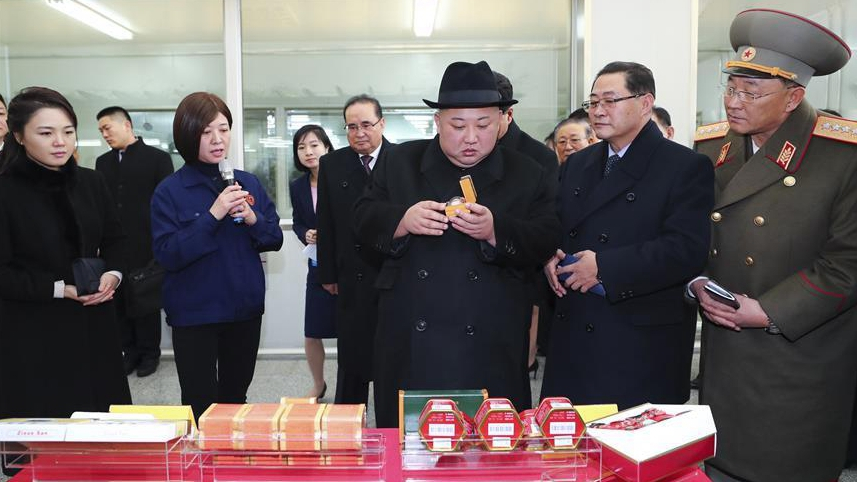
Politics
17:07, 10-Jan-2019
Kim Jong Un's shift from 'military first' to the economy
Updated
17:02, 13-Jan-2019
By Jin Yingqiao, Yu Jing
01:43

The Democratic People's Republic of Korea (DPRK) is apparently shifting its focus from a "military first" option to economic development. Signs of the dramatic policy change were seen during DPRK leader Kim Jong Un's visit to Beijing this week.
On Wednesday, Kim visited a factory of Tongrentang, a famous traditional Chinese medicine company. This came on the heels of Kim's New Year speech, in which he set goals to ramp up the DPRK's own industries, pharmaceuticals in particular (the DPRK is an important producer of herbs, such as Korean ginseng).
"We must modernize pharmaceutical and medical equipment factories, improve the quality of medical institutions and its services ...," he told the nation.
According to the South China Morning Post, Kim mentioned the word "economy" 38 times in his speech, almost double the number of last year.
The DPRK leader's desire to change direction can seemingly be traced back to almost seven years ago. When he took the office, he said the DPRK people would no longer have to "tighten their belts."
He gave farmers more freedom to trade their produce, and factories more room to control wages. He also eased limits on small private businesses. And in 2013, Kim called in a Party meeting for "Byungjin," or dual process, which involves developing nuclear weapons and the economy at the same time. It's still talking about nuclear deterrence but a step back from the traditional "Songun," or military first.
In April, Kim declared "Byungjin" a success. He said all efforts should go toward "socialist economic construction." Since then, Kim has visited farms and factories and often complained that development projects were not moving fast enough.

SITEMAP
Copyright © 2018 CGTN. Beijing ICP prepared NO.16065310-3
Copyright © 2018 CGTN. Beijing ICP prepared NO.16065310-3